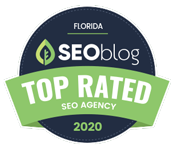Mistake #1: Not Defining Clear Goals
Most small-business ad errors are almost always about getting into pay-per-click (PPC) ad campaigns without any clearly defined goals. Before you set up an ad, try to ask yourself: What is the main goal I want to achieve from my ad? To increase hits on a website? To generate leads? To make a sale?
If these questions are left unanswered, the campaign often lacks direction behind it. Small business PPC management is essentially setting SMART goals: Specific, Measurable, Achievable, Relevant, and Time-Bound. The goals form the parameters by which everything is worked on, including keyword research, ad copy, and the bidding process.
How to Avoid This Mistake
- Have your campaign objectives in place before establishing yourself on any ad platform.
- Utilize tools such as Google Analytics and goal tracking in Google Ads to track progress.
- Choose KPIs by considering your business objectives — for instance, sign-ups for an email list for lead generation, or Return on Ad Spend (ROAS) for e-commerce.
Mistake #2: Ignoring Keyword Research
Too often, small businesses choose keywords without proper research, simply guessing. Some terribly wrong keyword choices could end up draining your pay-per-click budget in irrelevant traffic, while high bounce rates and low conversions are their other gifts to you.
Since it is such a big topic, here is some keyword planning. For successful management of your PPC campaigns for small-scale businesses, the keyword planning tools such as Google keyword Planner, Ubersuggest, or SEMrush need to be used to find keywords that are relevant, commonly searched, and realistically within your budget.
Tips for Better Keyword Research
- Target long-tail keywords for reaching intent-driven customers.
- Make use of negative keywords to avoid your ad showing up on irrelevant searches.
- Observe competition and volume to distinguish a cost-effective target.
Mistake #3: Writing Weak Ad Copy
Another major cause of small business ad troubles is the disregard of ad copy quality. Wrong ad copy, even with perfect keywords and targeting, results in poor click-through rates.
Strong ad copy addresses user intent and immediately points to a benefit of clicking. This, in turn, increases both CTR and Quality Score—and these factors directly determine the visibility and cost of an ad.
How to Improve Your PPC Copy
- Put clear, compelling headlines that match the search intent of the user.
- Have a description of your unique selling proposition that differentiates your business.
- Include a call to action such as Buy Now, Get a Quote, or Request Free Samples.
Mistake #4: Sending Traffic to the Wrong Landing Page
Misdirected would apply: a great majority of small businesses would go through the effort of designing a high-quality ad appropriate for a landing page but associate it instead with one of the many homepage variants rather than a targeted landing page. Absence of focus here causes high bounce rates and poor conversion performance, which does not help the campaign's return on investment. A good PPC management for small businesses will direct the traffic to a focused landing page relevant to it. This landing page should correspond with the message of the ad and its goal-whether purchase of the product, sign-up for a newsletter, or inquiry for a lead.
Landing Page Optimization Fixes
- Ensure the landing page content directly relates to the ad’s offer.
- Use clear navigation, strong headlines, and focused CTA buttons.
- Limit distractions and provide value immediately to keep visitors engaged.
Mistake #5: Ignoring Mobile Optimization
With more than 50% of all web traffic generated on mobile devices, many small businesses still miss out on opportunities to optimize their PPC campaigns for mobile users. Non-responsive landing pages or perhaps ads not designed for smaller screens will cause ad dollars to be wasted with no conversions.
The campaign should be mobile-first. From mobile-optimized landing pages to bid strategies based on mobile interaction, small business PPC management must account for how your target audience browses and converts on the go.
Mobile Optimization Essentials
- Use responsive web design for all landing pages.
- Include click-to-call extensions for quicker conversions on mobile.
- Test ad formats and visuals in mobile display environments.
Mistake #6: Not Monitoring or Adjusting Campaigns
Some small businesses tend to treat their ad campaigns as a "set it and forget it" matter. PPC is not just something you do once-it is a learning process that requires constant optimization. Every week or even every day, you can use data to your advantage from platforms like Google Ads to improve the campaign's success.
Not paying attention to the trends and the data of your ad campaigns is one expensive way to drain money out of your small-business budget. Frequent tuning of your campaigns is, therefore, an important factor toward making the growth of advertising scalable.
Monitoring Strategies
- Review your ad performance weekly to assess CTR, conversion rate, and spending.
- Use A/B testing on both ad copy and landing pages.
- Set up automated rules or alerts to notify you when performance dips.
Mistake #7: Not Leveraging Retargeting
One way retargeting really boosts ROI is by bringing back people who showed interest in your product or service. If you settle for skipping retargeting, then you lose precious opportunities to milk the most out of every click for your limited budget.
Proper PPC management for small companies includes employing retargeting ads to recapture the attention of previous visitors. This serves to keep your brand name in front of people while pushing the potential and probability of conversion further down the line.
How to Implement Retargeting Right
- Use tracking pixels like Facebook Pixel or Google Ads Tag to capture visitor data.
- Create segmented audiences based on what pages or products users visited.
- Design tailored ads that speak directly to each segment’s interests.
FAQs on PPC Management for Small Businesses
Q1: How much should a small business spend on PPC?
There is no specific figure that applies to everyone. Customs of advertizing usually dictate not more than 5-10% of your total revenue to marketing, half of which should be put into PPC. Set your budget low and say al petit petit to ad groups, and double down on what works.
Q2: How long does it take to see results?
Some results can be seen within days if campaigns are set up correctly. However, meaningful trends and ROI improvements typically take 1–3 months of optimizing, particularly for newer accounts.
Q3: Is PPC better than SEO for small businesses?
PPC gets traffic and visibility so quickly, while in comparison, SEO is more of a long-term investment. Both should ideally be a part of any smart digital marketing strategy.
Q4: Can I manage my PPC campaigns without an agency?
Yes, but time, tools, and knowledge are essential for efficient PPC management. Tools such as Google Ads Editor are useful; however, if you are unsure, consulting a PPC strategist to avoid these small business ad mistakes is more cost-effective over the long run.
How to Avoid Common Small Business Ad Mistakes
PPC management for small businesses works only when owners of small works in identifying and working with some of the common problems. Lack of experience, lack of resources, or probably misunderstanding the platform are responsible for such errors. Let us get right into some big pitfalls and how they are being dealt with.
- Targeting too broad of an audience: Generally, small businesses aim at reaching as many people as possible, thinking that the wider the audience, the more leads they will get. This setup dilutes your budget and gives rise to low-quality clicks. Proper PPC management would allow for more precise targeting, focusing only on those potential clients who are most likely to convert.
- Neglecting negative keywords: The next common mistake is neglecting negative keywords. Negative keywords are used to block irrelevant searches from chipping away at your ad spend. A well-managed PPC campaign regularly records the addition or removal of negative keywords based on the analysis of performance data.
- Ignoring analytics and conversions: Some owners of small businesses do not track whether the PPC campaign is effective or not. Without such an analysis with regard to metrics like CTR, cost per conversion, and return on ad spend (ROAS), optimization is nearly impossible. Successful PPC management for small businesses would ensure constant observation and tweaking of the campaign.
- Not aligning landing pages with ads: Some exemplary PPC campaigns run perfectly in theory but have an imperfectly constructed landing page: landing pages with no match to the promise of the ad will increase bounce rates and reduce conversions. If your advertisement offers a special deal while the landing site ushers visitors to the homepage, they might feel frustrated and leave. Hence, fine PPC management guarantees smooth progress by way of user experience from ad-click to conversion.
- Setting Unrealistic Budgets: While you may want to control the costs, the ad will never in fact gain any meaningful traction if the budget is set too low. Good PPC management for small businesses involves some evaluation of what their competitors pay for keywords and then setting a budget that offers the best returns.
Frequently Asked Questions About PPC for Small Businesses
How much should a small business budget for PPC?
Depending upon the setup, the budget can be flexible; in general, however, small businesses are thought to commence with small amounts less than $500-$1,500 per month and experiment with variations. When you begin to see actual results, it becomes much easier for you to scale your investment almost strategically. Thus, PPC management for small-business organizations involves constant testing and scaling up as much as returns or product sales allow without being too expensive.
Which platforms are best for small business PPC campaigns?
Following the stage of platform selection comes the decision about which particular platforms will best suit your needs. It is ideal to choose the best channels for managing the PPC campaign, which includes all search-based platforms: Google Ads and Bing Ads due to their huge reach and good targeting features, for example. In a B2C setup, social media advertising through e.g. Facebook or Instagram could be very worthwhile. PPC management assesses the platforms that best suit your audience and industry.
Can I manage PPC on my own or should I hire help?
A PPC campaign is definitely manageable on your own, but many small businesses benefit by hiring a certified professional or agency. A steep learning curve occurs, and less-than-optimal campaign management may drain your budget. An expert PPC management for small businesses ensures campaigns optimized more cleverly and ranked better with time.
How long does it take to see results from PPC?
Unlike SEO, PPC marketing starts to give results immediately after ads go live; quality results and sustainability, however, require time. You may require from weeks to months of data to refine your targeting, test various ad creatives, and adjust your bidding strategy. Patience and continuous observation form the recipe for success with PPC.
What’s the difference between PPC and SEO for small businesses?
From Search Engine Optimization and content optimization or SEO is aimed at generating organic traffic out of an engine of searches; on the other hand, PPC works by paying for immediate traffic. In a way, they complement each other, but PPC works faster for gaining visibility with measurable outcomes, particularly for newer establishments. Many SGBs find it best to protect other areas of their marketing efforts with a combined PPC and SEO approach.
Integrating PPC Management Into Your Overall Marketing Strategy
Rarely described as such, successful digital marketing goes with a great orchestration of a great variety of marketing tactics. For small businesses, PPC management should be just one aspect out of many that constitute a holistic digital marketing strategy: SEO, content marketing, email campaigns, and social media promotion. As far as dangers and immediate traffic are concerned, pipe-dream PPC will complement your brand power.
For example, among others, PPC campaigns can be set up to test keyword effectiveness before going into SEO full-time. Then you might also run PPC ads to retarget visitors who come onto your social media pages or were on your email list to keep your brand in their minds until their will to convert kicks in. All means come together smoothly, ensuring a certain percentage of overlap is avoided and a maximized ROI for the channels.
Measuring Success: PPC Metrics That Matter
Key performance indicators (KPIs) that you would monitor to observe how well your campaign is performing with respect to PPC are:
- Click-through rate (CTR): States whether the ads really are capable of generating a click on them.
- Cost per conversion: Indicates whether the investment has paid for some useful conversions.
- Quality Score: It is how Google assesses the relevance of your ads and landing pages.
- Return on ad spend (ROAS): The ratio between revenue generated from the ads and what has been spent on them.
When this all is in place, you are able to figure out where your advertising money is being used—and where there exist possibilities for improvement. It is continued optimization that separates a stagnant campaign from a thriving one.
Wrapping Up Your PPC Strategy
PPC ad management for the small business does not only mean spending ad dollars, but it maximizes the very last cent of the marketing budget. If rightly applied, this method brings great yields in creating brand awareness, driving quality traffic, and the revenue; however, small business ad errors such as poor targeting, poor keyword selection, or ignoring performance metrics robs one of these benefits. The best part? You can always avoid these through effective means and expert advice to make PPC serve you properly.
The primary advantage that this type of pay per click advertising offers is that every entity gets a shot at it, including a small or medium business having limited means for PPC. With Google Ads, Microsoft Advertising, and advertising on social media platforms, you can easily start small and increase your budgets only as more momentum builds behind it. But then, understanding the data, setting clear goalposts, and continuous refinement are key elements that make up the successful PPC strategy.
Elements of an integrated PPC strategy include:
- Keyword Research: Know what your audience is searching for and displaying ads when those terms are in use.
- Landing Page Optimization: The click ought to bring forth a relevant and fast-loading page that is set for conversion.
- A/B Testing: Testing different ad copies, visuals, and CTAs on the regular basis to find out which offer the best results.
- Performance Monitoring: Analyzing ROI, CTR, and conversion metrics.
There surely is a lot of benefit that comes with partnering with a PPC expert. Eventual strategies will be made by a knowledgeable person who has already been in similar situations. Less mistakes with small business ads and more time to focus on running your enterprise. If you want more visibility and have to spend more on advertising, now is a perfect opportunity to Speak with a PPC strategist.
Frequently Asked Questions
What is PPC management for small businesses in simple terms?
PPC management for small businesses is a strategy or concept used to improve small business ad mistakes through structured and intentional methods.
How does PPC management for small businesses help?
It improves performance by aligning your content with search behavior and industry best practices.
Can I apply PPC management for small businesses on my own?
Absolutely. With the right tools and structure, even beginners can effectively implement these principles.
What tools should I use?
Start with Google Search Console, SEMrush, and keyword research tools. These help you understand how PPC management for small businesses impacts your performance.
Next Steps
Paid advertising would be a well-placed focus at any stage of the marketing journey. Whether you are starting bit by bit from scratch or trying to fix the missteps of small business ad management, the best decision is to call in the help of an expert. Better lead generation, higher ad spend, and precise targeting of prospect profiles.
Speak with a PPC strategist today and unlock the true potential of PPC management for small businesses.






























